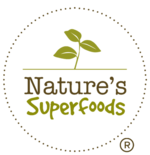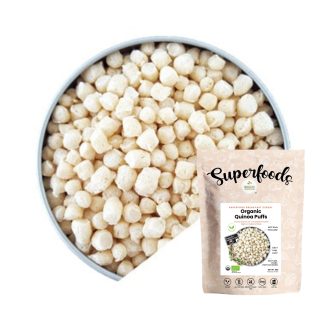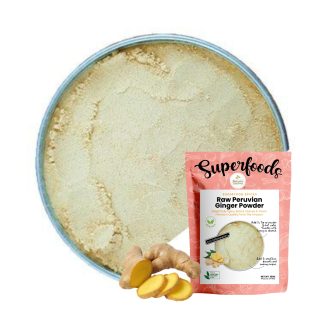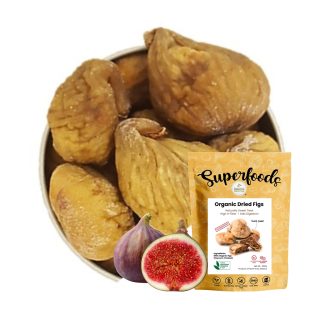-
No products in the cart.
Acid Reflux
GERD (gastroesophageal reflux disease) is a condition where the acid-containing contents in your stomach persistently leak back up into your esophagus (i.e. food pipe)
Acid reflux occurs because a valve at the end of your esophagus does not close entirely when food arrives at your stomach. Acid backwash then flows back up through your esophagus into your throat and mouth, giving you a sour taste. Acid reflux can happen to almost everyone at some point in life and it tends to become more frequent or severe with age. If you have been having repeated episodes of acid reflux, try the following:
Eat slowly and sparingly
The tendency of reflux is higher when the stomach is very full. If your schedule permits, have smaller meals more frequently rather than having three main meals per day. Slow and proper chewing helps with GERD as it breaks food into smaller particles, easing digestion and reducing the need for excess stomach acid.
Eat up to 70-80% full instead of 100%, as smaller meals digest more efficiently. This principle of eating up to 80% full is also crucial for weight control.
Avoid foods that can trigger reflux
Mint, tomatoes, onions, garlic, coffee, tea, chocolate, spicy foods and fatty foods are more prone to trigger reflux. If you consume any of these foods regularly, try eliminating them to see if it helps to control your reflux and then try adding them back one by one.
Watch what you eat in the morning
Instead of having oily foods like nasi lemak in the morning (empty stomach) which will worsen GERD symptoms, try having healthier, high-fiber yet tasty alternatives like smoothies, Rolled Oats with banana/fruits, Overnight Oats with plant-based milk, Purple Corn Cereal Mix, Superfood Muesli Porridge or unsweetened Greek yoghurt topped with no-refined-sugar Dark Choc Granola.
Avoid carbonated beverages, white bread, pastries and sugary foods.
Carbonated beverages (e.g. sparkling water, beer, sweetened soda) cause belching (burping), which will promote reflux of stomach contents.
Foods that are low in fiber and high in simple carbs (like bread, white rice, and high-sugar drinks or food) lead to faster digestion and acid surge in the stomach.
Avoid eating near to bedtime
Avoid late suppers, midnight snacks and napping/sleeping after meals. Lying down while your stomach is full can cause acid to flow back up to the esophagus. As a rule of thumb, finish eating three hours before bedtime.
Avoid vigorous exercise after eating
An after-meal stroll/walk is ok, but strenuous workout, particularly if it involves bending over can promote reflux.
Lose weight if your BMI is above 23 kg/m2
Increased weight spreads the muscular structure that supports the lower esophageal sphincter. As a result, this decreases the pressure that holds the sphincter closed, leading to reflux and heartburn.
Quit smoking
Nicotine relaxes the lower esophageal sphincter, promoting reflux.
Check your medications
Postmenopausal estrogen, tricyclic antidepressants, anti-inflammatory painkillers, bisphosphonates like alendronate (Fosamax), ibandronate (Boniva), or risedronate (Actonel), may promote reflux.
Herbal remedies
Herbal remedies such as chamomile tea can provide a soothing effect on the digestive tract, while ginger, which has been a folk remedy for reflux for centuries maybe helpful for managing reflux.
To incorporate ginger into you diet, simple mix in raw ginger powder in your dishes or adding our organic raw honey infused with ginger & lemon into lukewarm water.
Conclusion
If you experience acid reflux more than twice a week over a period of several weeks and these steps are not effective, please visit a physician. You may need medication to control reflux even as you pursue lifestyle changes.
References
Cleveland Clinic. 2019. GERD (Chronic Acid Reflux) [ONLINE] Available at: https://my.clevelandclinic.org/health/diseases/17019-gerd-or-acid-reflux-or-heartburn-overview. [Accessed 14 April 2021].
Havard Health Publishing. 2021. 9 ways to relive acid reflux without medication [ONLINE] Available at: https://www.health.harvard.edu/digestive-health/9-ways-to-relieve-acid-reflux-without-medication. [Accessed 15 April 2021].
SingHealth. 2021. Acid Reflux: Diagnosis and Treatment [ONLINE] Available at: https://www.healthxchange.sg/head-neck/ear-nose-throat/acid-reflux-diagnosis-treatment. [Accessed 16 April 2021].
Havard Health Publishing. 2021. What is GERD of Gastroesophageal reflux disease [ONLINE] Available at: https://www.health.harvard.edu/digestive-health/9-ways-to-relieve-acid-reflux-without-medication . [Accessed 17 April 2021].
Browse Superfoods which Aids Acid Reflux
Showing all 3 results
-
Organic Quinoa Puffs
$6.95 – $19.90 View More This product has multiple variants. The options may be chosen on the product page -
Organic Raw Peruvian Ginger Powder
$8.90 View More This product has multiple variants. The options may be chosen on the product page -
Organic Sun-Dried Figs
$16.00Out of stock
View More This product has multiple variants. The options may be chosen on the product page
Showing all 3 results




